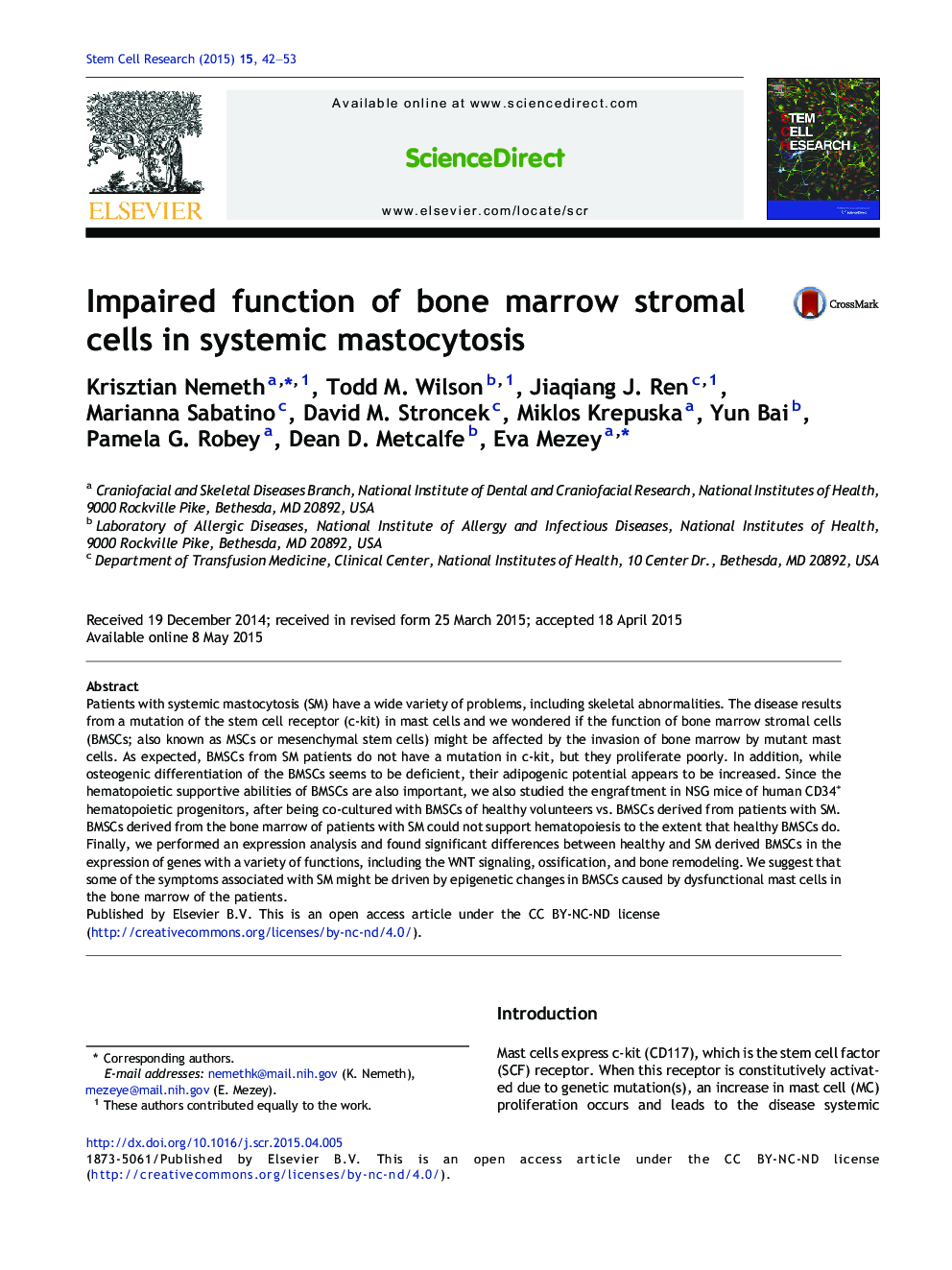| Article ID | Journal | Published Year | Pages | File Type |
|---|---|---|---|---|
| 2094070 | Stem Cell Research | 2015 | 12 Pages |
•Patients with systemic mastocytosis (SM) develop anemia and skeletal problems.•Bone marrow stromal cells from patients (SM-BMSCs) show abnormal growth.•SM-BMSCs in vitro make less bone and more fat than normal BMSCs.•SM-BMSCs do not carry mutation of the stem cell receptor (c-kit).•The gene expression profile of SM-BMSCs differs from healthy BMSCs.
Patients with systemic mastocytosis (SM) have a wide variety of problems, including skeletal abnormalities. The disease results from a mutation of the stem cell receptor (c-kit) in mast cells and we wondered if the function of bone marrow stromal cells (BMSCs; also known as MSCs or mesenchymal stem cells) might be affected by the invasion of bone marrow by mutant mast cells. As expected, BMSCs from SM patients do not have a mutation in c-kit, but they proliferate poorly. In addition, while osteogenic differentiation of the BMSCs seems to be deficient, their adipogenic potential appears to be increased. Since the hematopoietic supportive abilities of BMSCs are also important, we also studied the engraftment in NSG mice of human CD34+ hematopoietic progenitors, after being co-cultured with BMSCs of healthy volunteers vs. BMSCs derived from patients with SM. BMSCs derived from the bone marrow of patients with SM could not support hematopoiesis to the extent that healthy BMSCs do. Finally, we performed an expression analysis and found significant differences between healthy and SM derived BMSCs in the expression of genes with a variety of functions, including the WNT signaling, ossification, and bone remodeling. We suggest that some of the symptoms associated with SM might be driven by epigenetic changes in BMSCs caused by dysfunctional mast cells in the bone marrow of the patients.
